Table of Contents
UGC NET Museology Syllabus 2025 has been available on official website. Candidates with Museology & Conservation can find their syllabus as well. UGC NET Museology & Conservation Syllabus assesses candidates’ research aptitude. The UGC NET Museology & Conservation syllabus covers a wide range of topics related to museums, from their history and philosophy to the practical aspects of managing and caring for collections. The details regarding the syllabus of Museology & Conservation have been provided below.
UGC NET Museology & Conservation Syllabus 2025
The UGC NET Museology & Conservation syllabus encompasses a comprehensive study of museology, conservation, and heritage management, to evaluate candidates’ proficiency in these domains for academic and research roles. The syllabus of Museology & Conservation covers diverse topics including the history and principles of museology, museum management, conservation techniques, preservation of cultural heritage, cultural policy and legislation, museum ethics, and contemporary issues in the field. It also emphasizes the interdisciplinary nature of museology, integrating knowledge from fields such as archaeology, anthropology, art history, and cultural studies.
UGC NET Museology & Conservation Syllabus Highlights
The UGC NET Museology & Conservation syllabus offers a comprehensive framework for studying and assessing candidates’ proficiency in these vital areas, preparing them for academic, research, and professional roles in the field. Here’s a structured table highlighting the exam pattern for both Paper 1 and Paper 2 of the UGC NET Museology and Conservation exam:
| UGC NET Museology and Conservation Syllabus | ||
|---|---|---|
| Exam Paper | Paper 1: General Paper | Paper 2: Museology and Conservation |
| Exam Duration | 3 hours | 3 hours |
| Total Questions | 50 (all compulsory) | 100 (all compulsory) |
| Question Type | Multiple Choice Questions (MCQs) | Multiple Choice Questions (MCQs) |
| Total Marks | 100 | 200 |
| Marking Scheme | Each question carries 2 marks | Each question carries 2 marks |
| Negative Marking | No negative marking | No negative marking |
UGC NET Museology and Conservation Exam Pattern 2025
The UGC NET Museology and Conservation exam pattern is structured to assess candidates’ proficiency in teaching and research aptitude as well as their subject-specific knowledge in Museology and Conservation. Here’s an overview of the UGC NET Syllabus and exam pattern:
Paper 1: General Paper on Teaching and Research Aptitude
- Exam Duration: 3 hours
- Total Questions: 50 (all compulsory)
- Question Type: Multiple Choice Questions (MCQs)
- Total Marks: 100
- Marking Scheme: Each question carries 2 marks
- Negative Marking: No negative marking
- Syllabus Coverage: Teaching Aptitude, Research Aptitude, Comprehension, Communication, Mathematical Reasoning and Aptitude, Logical Reasoning, Data Interpretation, Information and Communication Technology (ICT)
Paper 2: Subject-specific Paper (Museology and Conservation)
- Exam Duration: 3 hours
- Total Questions: 100 (all compulsory)
- Question Type: Multiple Choice Questions (MCQs)
- Total Marks: 200
- Marking Scheme: Each question carries 2 marks
- Negative Marking: No negative marking
- Syllabus Coverage: History and Principles of Museology, Museum Management, Conservation Techniques, Preservation of Cultural Heritage, Cultural Policy and Legislation, Museum Ethics, Contemporary Issues in Museology and Conservation, Interdisciplinary Perspectives
UGC NET Museology & Conservation Syllabus Paper 2
The details Unit-wise syllabus for UGC NET Museology & Conservation Syllabus Paper 2 has been provided below.
Unit I: Introduction to Museum and Museology
- Definitions and concepts of museum, ecomuseum, community museum, virtual museum, neighborhood museum, etc.
- Definitions and concept of museology, new museology, meta museology, museography, etc.
- Early collections, ancient and medieval prototypes of museums.
- Functions and role of museums.
- Role of national and international professional organizations
Unit II: Collection Management
- Purposes of collecting. Scope of collections – tangible and intangible.
- Ethics of collecting. Collection management policy including acquisitions,disposal, loaning, insurance, etc.
- Methods of collecting tangible and intangible heritage.
- Methods of authenticating museum objects.
- Collection holding areas for tangible and intangible collections
Unit III: Documentation and Research of Tangible and Intangible Collections
- Purposes of documenting museum collections
- Ethics of documentation.
- Documentation policy and procedures.
- Types of documents – entry, accession, classified, and movement registers; index and catalogue cards. Digital documentation.
- Numbering the objects – numbering systems, procedure of applying numbers on objects.
- Concept of Object ID.
- Objectives and scope of collection research. Models of collection research.
Unit IV: Museum Exhibitions
- Museum exhibition as a communication system. Models of communication in the context of exhibitions.
- Exhibition policy.
- Ethics of exhibitions.
- Types of exhibitions on the basis of duration, location, arrangement of objects/ specimen and purpose.
- Components of exhibitions
- Exhibition text
- Exhibition lighting
- Planning and designing exhibitions
- Evaluation – front-end analysis, formative and summative evaluation.
Unit V: Museum Education, Interpretation and Publications
- Role and potential of museums in informal, non-formal and formal education/learning.
- Museums and life long learning. Barriers to learning in museums. Education versus interpretation.
- Ethics of museum education.
- Museum education policy. Theories of learning. Characteristics of learning in museums.
- Various learning activities such as guides tours, lectures, talks, storytelling, workbooks, workshops, demonstrations, drama, role play, live interpretation, digital methods, etc. for different target groups.
- Making learning opportunities accessible to persons with disabilities.
- Museum extension services – travelling and mobile exhibitions, school loan kits, community programmes, excursions, field trips, heritage walks, etc. Extension through digital media.
- Museum publication – purpose and types.
- Feedback – purposes and methods
Unit VI: Conservation of Collections – Part I
- Definitions of conservation
- Nature and properties of material of collections
- Causes and types of deterioration
- Preventive conservation
- Integrated Pest Management
Unit VII: Conservation of Collections – Part II
- Methodology of remedial conservation
- Materials, equipment, tools and techniques used in remedial conservation of materials
- Health and safety issues.
Unit VIII: Museum Management
- Concept of Management
- Essential components of management
- Functions of management
- Planning
- Organization Design
- Staffing
- Controlling
- Financing
- Project Management.
- Prevention of harassment in work place.
- Museum security
- Disaster management
Unit IX: Museum Marketing and Public Relations
- Meaning and purpose of marketing and its role in museums. Marketing terminology.
- Concept and types of products.
- Product Life cycle and marketing strategies at different stages.
- Segmentation and target marketing
- Marketing Mix
- Marketing Research
- Tools, tactics and strategies of Public Relations. Media relations. Public relations campaigns.
Unit X: Legislation and Conventions Related to Museums and Heritage
- The Indian Treasure Trove Act, 1878
- The Ancient Monuments and Archaeological Sites and Remains Act, 1958
- The Antiquities and Art Treasures Act, 1972
- The Wild Life Protection Act, 1972
- Persons with disabilities Act, 1995
- Right to information Act, 2005
- UNESCO World Heritage Convention, 1972
- Convention on International Trade in Endangered species of Wild Flora and Fauna, 1973
- The Venice Charter, 1964
- The UNESCO Convention for the Safeguarding of the Intangible Cultural Heritage, 2003
Download UGC NET Museology and Conservation Syllabus PDF
The direct Link has been available to download the UGC NET Museology and Conservation Syllabus PDF provided below. Click on the below link to download the UGC NET Syllabus for Museology and Conservation Subject.
UGC NET Museology and Conservation Syllabus PDF
How to use UGC NET Museology & Conservation Syllabus?
To effectively utilize the UGC NET Museology & Conservation syllabus, candidates should follow these steps:
- Review the Syllabus: Thoroughly examine the syllabus provided by UGC NET for Museology and Conservation. Understand the topics and subtopics covered in both Paper 1 (General Paper on Teaching and Research Aptitude) and Paper 2 (Subject-specific Paper).
- Create a Study Plan: Develop a study plan that allocates sufficient time to cover each topic in the syllabus. Divide your study sessions based on the weightage and complexity of the topics. Allocate more time to areas where you need additional preparation.
- Gather Study Materials: Collect relevant study materials, including textbooks, reference books, research articles, and online resources related to Museology and Conservation. Ensure that your study materials align with the topics outlined in the syllabus.
- Understand Concepts: Delve deeply into each topic and understand the underlying concepts, theories, principles, and methodologies. Take notes, create summaries, and use visual aids to enhance your understanding.
- Practice with Previous Papers: Practice solving previous years’ question papers and mock tests to familiarize yourself with the exam pattern and question types. This will help you assess your knowledge and identify areas that require further improvement.

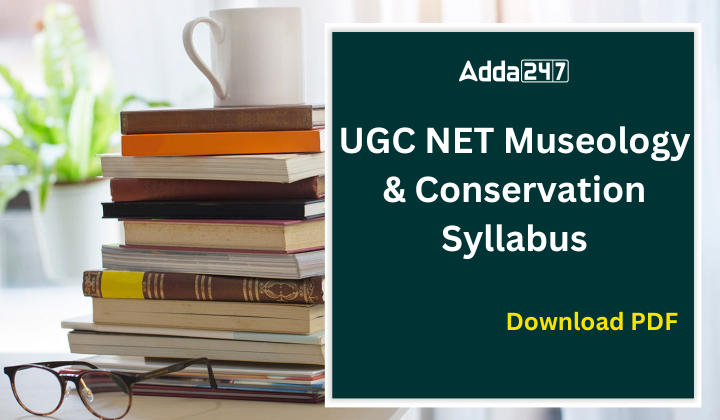
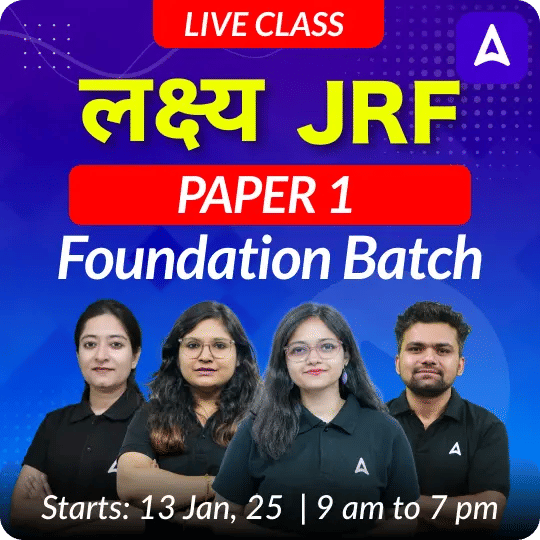

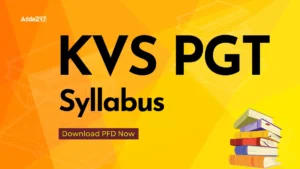 KVS PGT Syllabus 2025, Download PGT Syll...
KVS PGT Syllabus 2025, Download PGT Syll...
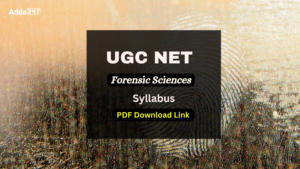 UGC NET Forensic Science Syllabus 2025 a...
UGC NET Forensic Science Syllabus 2025 a...
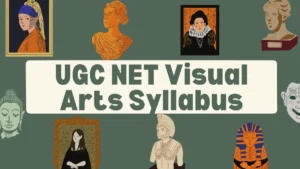 UGC NET Visual Arts Syllabus 2025 PDF Do...
UGC NET Visual Arts Syllabus 2025 PDF Do...














